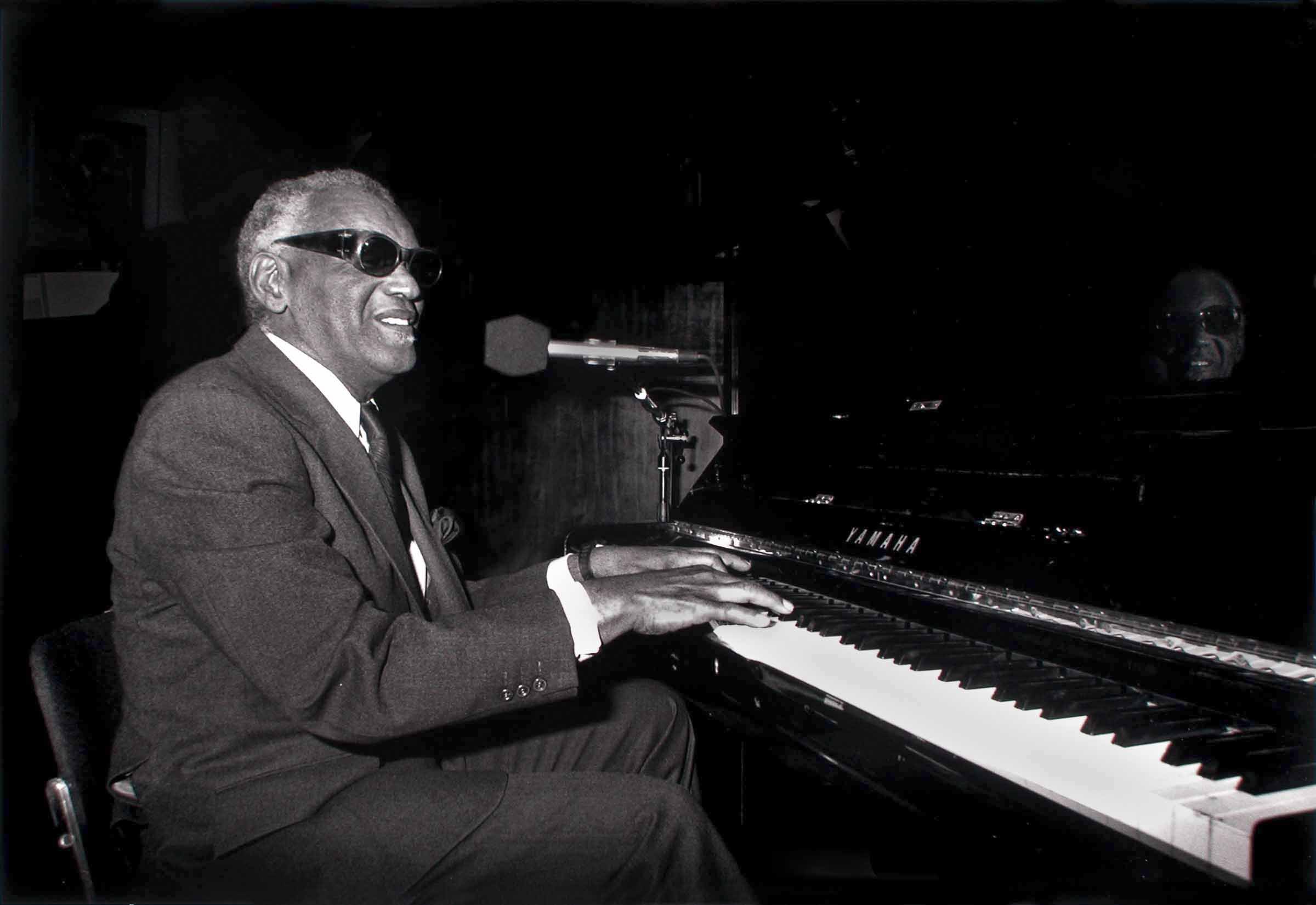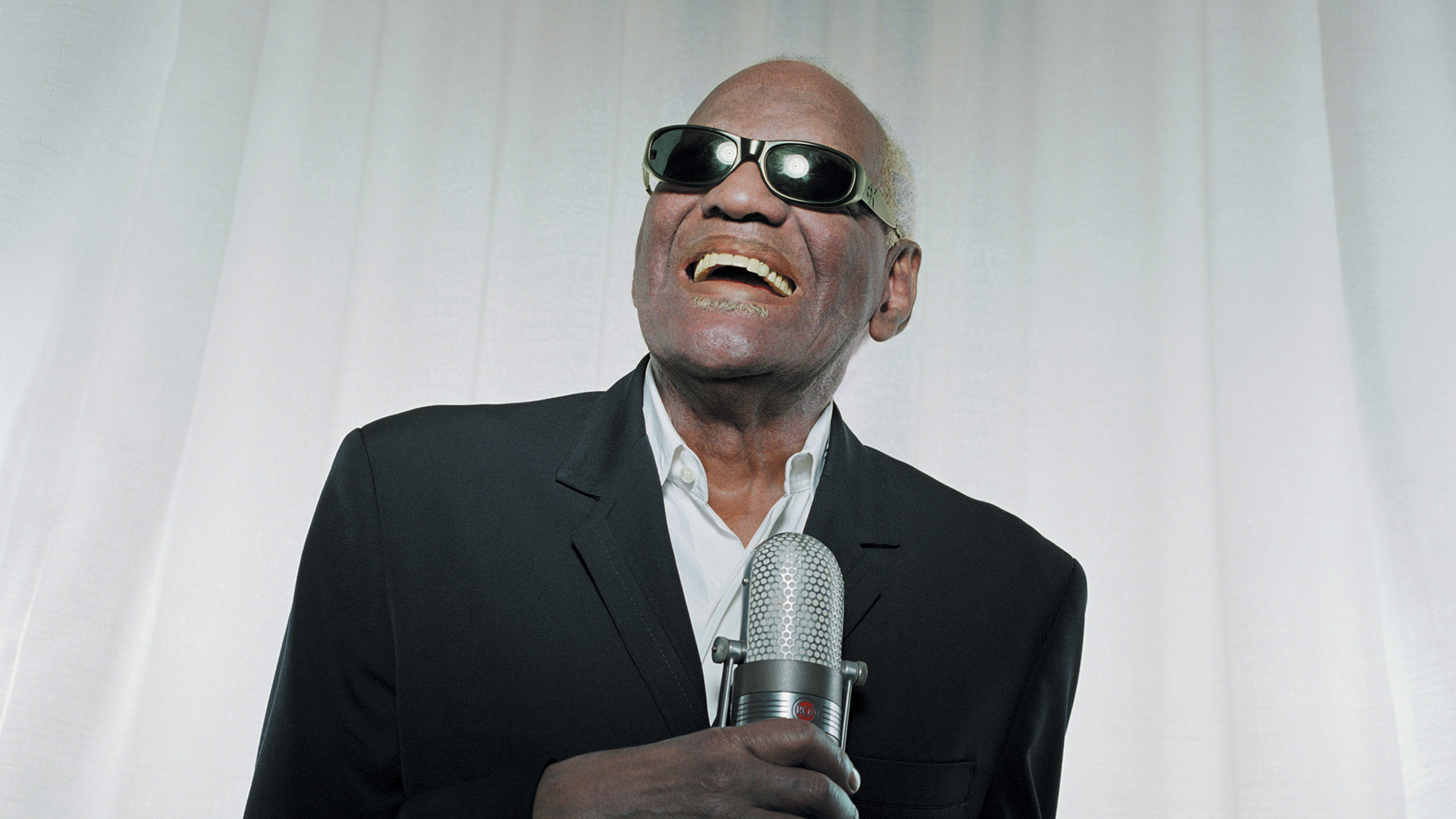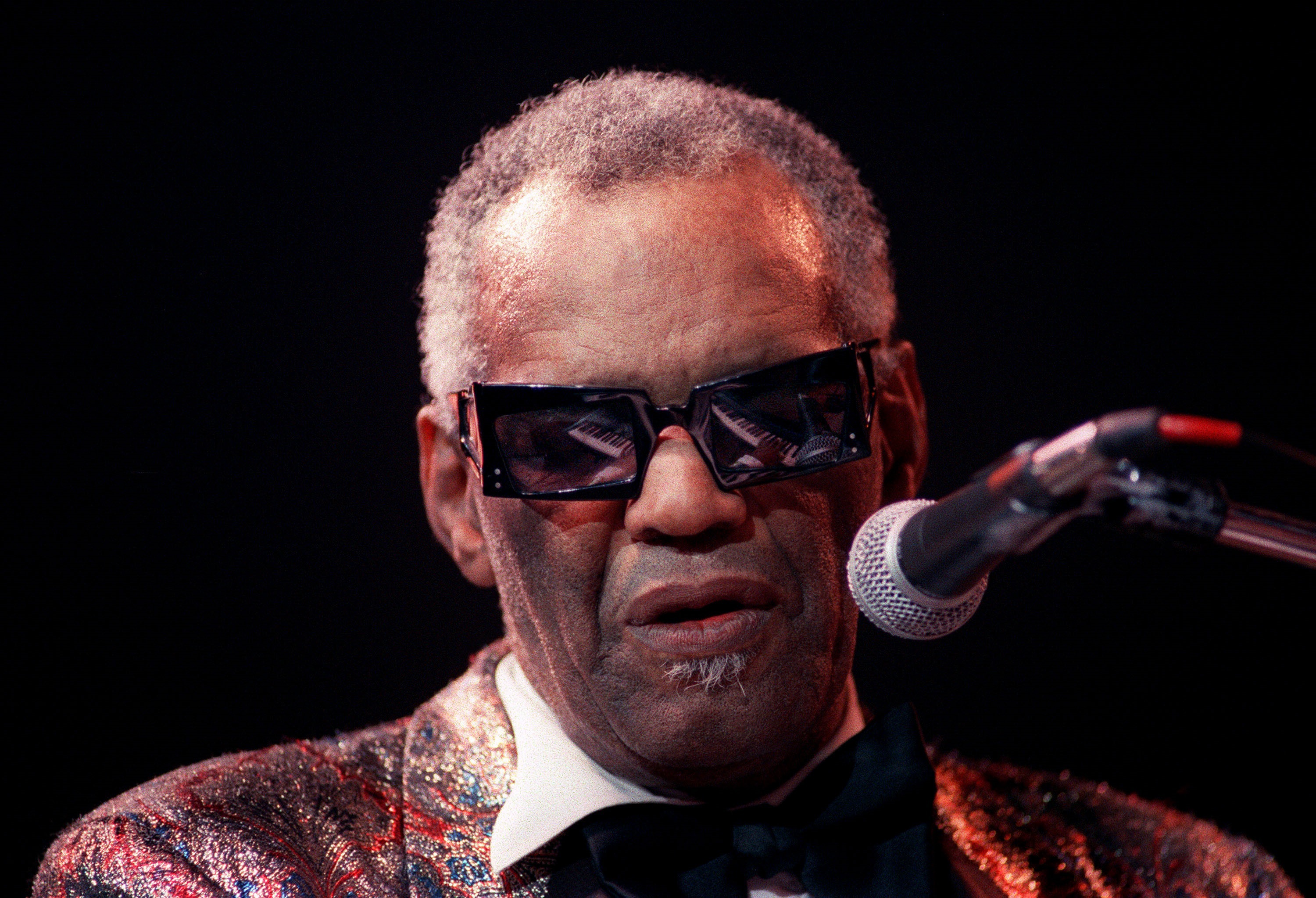Ever wondered who Ray Charles was? Well, buckle up, because we're about to dive deep into the life of a man who revolutionized music and left an indelible mark on the world. Ray Charles wasn't just a musician; he was a force of nature, a trailblazer who redefined genres and broke barriers. So, grab your headphones, and let's explore the life of this iconic figure who changed the music game forever.
If you've ever heard the soulful sounds of "Georgia on My Mind" or the timeless classic "What'd I Say," then you've experienced the magic of Ray Charles. But there's so much more to his story than just the music. Ray Charles was a pioneer who shattered racial barriers, challenged the norms of the music industry, and became a symbol of resilience and creativity. His journey from humble beginnings in the deep South to becoming a global icon is nothing short of inspirational.
So why should you care about Ray Charles? Because his story is not just about music; it's about overcoming adversity, breaking boundaries, and creating something truly extraordinary. In this article, we'll explore his life, his legacy, and the impact he had on the world. Whether you're a music enthusiast or just curious about one of history's greatest artists, this is a story worth knowing.
Read also:Parents Of Wentworth Miller The Untold Story Of A Hollywood Legacy
Biography of Ray Charles: The Man Behind the Music
Before we dive into the nitty-gritty of Ray Charles' career, let's take a moment to understand the man behind the legend. Ray Charles Robinson was born on September 23, 1930, in Albany, Georgia. His early life was shaped by hardship and resilience, setting the stage for the incredible journey that lay ahead. Below is a quick glance at some key details of his life:
| Full Name | Ray Charles Robinson |
|---|---|
| Date of Birth | September 23, 1930 |
| Place of Birth | Albany, Georgia |
| Date of Death | June 10, 2004 |
| Place of Death | Beverly Hills, California |
| Genre | Soul, R&B, Jazz, Blues, Gospel |
Early Life and Challenges
Growing up in Greenville, Florida, Ray Charles faced numerous challenges from a young age. At just five years old, he witnessed the tragic drowning of his younger brother, George, an event that deeply impacted him. Shortly after, he began losing his sight due to glaucoma, eventually becoming completely blind by the age of seven. Despite these hardships, Ray's mother, Aretha Robinson, instilled in him a strong sense of determination and resilience. She encouraged him to pursue his passion for music, which became his lifeline.
The Rise of Ray Charles: From Obscurity to Stardom
Ray Charles' journey to stardom wasn't an overnight success. It was a gradual ascent fueled by his relentless drive and unparalleled talent. In the late 1940s, Ray moved to Seattle, where he began honing his craft and building a reputation as a musician. Here are some key milestones in his early career:
- 1950s Breakthrough: Ray signed with Atlantic Records, where he began experimenting with blending genres like gospel, blues, and jazz, creating a sound that was entirely his own.
- 1954 Hit: His song "I Got a Woman" became a massive hit, showcasing his ability to fuse gospel and R&B seamlessly.
- 1959 Masterpiece: "What'd I Say" cemented Ray's place in music history, becoming a groundbreaking anthem that defined the soul genre.
Ray Charles' ability to innovate and push boundaries set him apart from his contemporaries. He wasn't afraid to take risks, and his willingness to experiment with different styles helped him carve out a unique niche in the music industry.
Breaking Barriers: Ray Charles and the Civil Rights Movement
Ray Charles was more than just a musician; he was a cultural icon who used his platform to advocate for civil rights. In the 1960s, at the height of the Civil Rights Movement, Ray refused to perform in segregated venues, using his influence to challenge racial injustice. His song "Georgia on My Mind," which became the official state song of Georgia, was a testament to his ability to bridge divides and bring people together through music.
Ray Charles' Musical Legacy: A Legacy That Transcends Time
When you talk about Ray Charles, you're not just talking about a musician; you're talking about a legend whose influence extends far beyond his lifetime. His contributions to music are immeasurable, and his impact on the industry continues to resonate with artists today. Here are some reasons why Ray Charles' legacy endures:
Read also:Unveiling The Secrets Of Pyramid Facing Stones A Journey Through Time
- Genre Fusion: Ray Charles was a master of blending genres, creating a sound that was both innovative and timeless.
- Influence on Artists: From Stevie Wonder to Alicia Keys, countless artists have cited Ray Charles as a major influence on their work.
- Grammy Awards: Ray Charles won 12 Grammy Awards during his lifetime, cementing his status as one of the greatest musicians of all time.
Ray's ability to connect with audiences through his music was unmatched. Whether he was performing in a small club or a massive stadium, his passion and authenticity shone through every note he played.
Ray Charles' Impact on the Music Industry
Ray Charles' influence on the music industry cannot be overstated. He paved the way for future artists by breaking down barriers and challenging the status quo. His willingness to experiment with different styles and genres opened doors for countless musicians who followed in his footsteps. Ray's legacy is not just about the music he created but also about the changes he helped bring about in the industry.
Ray Charles' Personal Life: A Closer Look
While Ray Charles is best known for his music, his personal life was equally fascinating. He was married twice and had 12 children, many of whom he fathered with different women. Despite his fame and success, Ray faced personal challenges, including battles with drug addiction. However, he overcame these struggles and used his experiences to fuel his artistry.
Ray's personal life was as colorful as his music, and it added depth to the man behind the legend. His ability to navigate the complexities of life and channel them into his art is a testament to his resilience and creativity.
Overcoming Addiction: Ray Charles' Journey to Recovery
One of the most significant challenges Ray Charles faced was his battle with drug addiction. In the 1960s, he was arrested for possession of heroin and other drugs. Rather than let this define him, Ray chose to confront his addiction head-on. He entered rehab and emerged stronger, using his experience to inspire others and inform his music.
Ray Charles' Collaborations: Working with the Greats
Ray Charles was known for his collaborations with some of the biggest names in music. From Frank Sinatra to Aretha Franklin, he worked with artists who shared his passion for innovation and excellence. These collaborations produced some of the most iconic tracks in music history, showcasing Ray's ability to bring out the best in his fellow musicians.
Some of his most memorable collaborations include:
- "Seven Spanish Angels" with Willie Nelson: A country-soul fusion that became a chart-topping hit.
- "Here We Go Again" with Norah Jones: A Grammy-winning duet that introduced Ray's music to a new generation.
These collaborations not only expanded Ray's reach but also demonstrated his versatility as an artist.
The Ray Charles Foundation: Continuing the Legacy
In 2004, the Ray Charles Foundation was established to honor Ray's memory and continue his legacy. The foundation focuses on supporting educational programs and initiatives that promote music education and accessibility for visually impaired individuals. Through the foundation, Ray's impact continues to be felt in communities around the world.
Ray Charles in Popular Culture: A Timeless Icon
Ray Charles' influence extends beyond the music industry and into popular culture. His life and music have been celebrated in films, documentaries, and books, ensuring that his story is shared with new generations. The 2004 biographical film "Ray," starring Jamie Foxx, brought Ray's story to a global audience and earned Foxx an Academy Award for his portrayal.
Ray's music continues to be featured in movies, TV shows, and commercials, keeping his legacy alive for audiences today. His ability to transcend time and resonate with people of all ages is a testament to his enduring appeal.
Why Ray Charles Matters Today
In a world that often feels divided, Ray Charles' music serves as a reminder of the power of unity and understanding. His ability to bring people together through his art is more relevant than ever. Whether you're listening to "Georgia on My Mind" or "What'd I Say," Ray's music has the power to touch the soul and inspire hope.
Conclusion: Ray Charles, A Legend for the Ages
In conclusion, Ray Charles was more than just a musician; he was a cultural icon whose impact on the world cannot be overstated. From his early days in the South to his rise to global fame, Ray's journey was one of resilience, creativity, and innovation. His contributions to music and his advocacy for civil rights continue to inspire and influence artists today.
So, the next time you hear a Ray Charles song, take a moment to appreciate the man behind the music. His legacy is a testament to the power of art to transcend barriers and bring people together. And if you haven't already, go ahead and explore his music; you won't be disappointed.
Got thoughts on Ray Charles? Drop a comment below and let's keep the conversation going. Share this article with your friends and family, and help spread the word about one of the greatest musicians of all time. Thanks for reading!
Table of Contents
- Biography of Ray Charles
- Early Life and Challenges
- The Rise of Ray Charles
- Breaking Barriers: Ray Charles and the Civil Rights Movement
- Ray Charles' Musical Legacy
- Ray Charles' Impact on the Music Industry
- Ray Charles' Personal Life
- Overcoming Addiction: Ray Charles' Journey to Recovery
- Ray Charles' Collaborations
- The Ray Charles Foundation
- Ray Charles in Popular Culture


